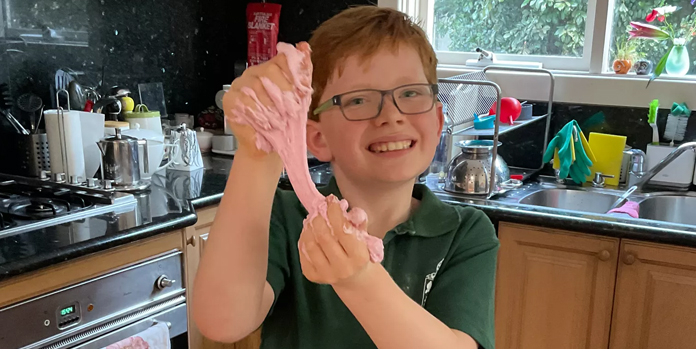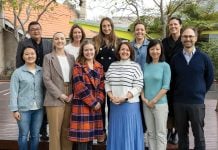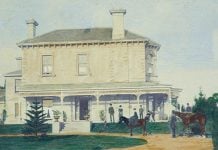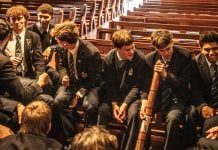When the School unexpectedly moved to off-campus learning during Term III, it seemed like Science Week might be compromised. However, like all good scientists, science leaders across the School utilised ingenuity and new ways of thinking to deliver an outstanding program of activities.
National Science Week is Australia’s annual celebration of science and technology, and it aims to foster an interest in science pursuits across the community. The 2021 designated theme for schools was Food: Different by Design.
For our youngest students at Grimwade House, Science Week was simply an extension of their classroom-based science studies. With 18 kitchen-based activities to choose from, the understanding that science is all around them every day quickly became evident to the students.
Activities included using tea as a pH indicator, taste testing different coloured carrots and exploring the application of Fibonacci numbers in flowers and fruit. However, arguably the most popular experiment was an investigation into the different states of matter by making edible slime!
Year 4 student, Henry says: “The marshmallow slime was yummy, gooey and fun. It was a bit goobery delight!” Lily, from Year 6, concurs saying: “I had a blast making and creating science experiments around my house. The marshmallow slime was my favourite because it was edible and fun to play with apart from the mess. It was super interesting see how different things change a mixture.”
For Year 6 student, Charlie, Science Week was an opportunity to explore beyond the set activities. “I enjoyed trying many food experiments. First, I made food illusions and then I made my own experiment,” he says. “When I tried my experiment to make slushies, I used basic ideas from lessons.”
“Even though the students were working at home, the scientific principles we teach at school continue to hold,” says Amanda Masters, Science Coordinator at Grimwade House.
“Many of our science activities have an element of fun but students are still expected to, for example, make careful measurements, minimise variables and make informed predictions regardless of how and where they are carrying out their experiments.”
Amanda Masters
At secondary school level, Science Week provides an opportunity for our learning community to come together to share their knowledge, ideas and perspectives.
In addition to quizzes and puzzles, both Wadhurst and Senior School students and staff were presented with provocations about topical matters by Laura Fitzgerald, Science Coordinator at Wadhurst and Stuart Jamieson, Head of Science at Senior School, respectively. The importance of protecting our bee population, generating alternative food sources, and reducing food packaging and wastage were just some of the topics offered to the community for consideration.
“Science week is a continuation of the process of reflecting on the progress in science in recent years,”
Year 12 student and Chair of the Science and Technology Committee Anthony Chen.
One of the side benefits of some Science Week activities is that they draw together students with common interests. While they may not share classes, students can build friendships based on this context. For example, the Senior School trivia quiz was a House based competition this year. “This approach encouraged students from different year levels to come together, which doesn’t occur frequently,” explains Stuart. “It had a real community spirit.”
And why take the time to engage in Science Week during the challenge of off-campus learning? “Science Week takes all members of our community beyond the theoretical aspects of science,” explains Laura. “Plus, students tend to choose to continue on with science subjects when they can see the application and purpose of it. While we try to show this in our classrooms every day, Science Week provides us with another way to engage students with this important discipline.”



